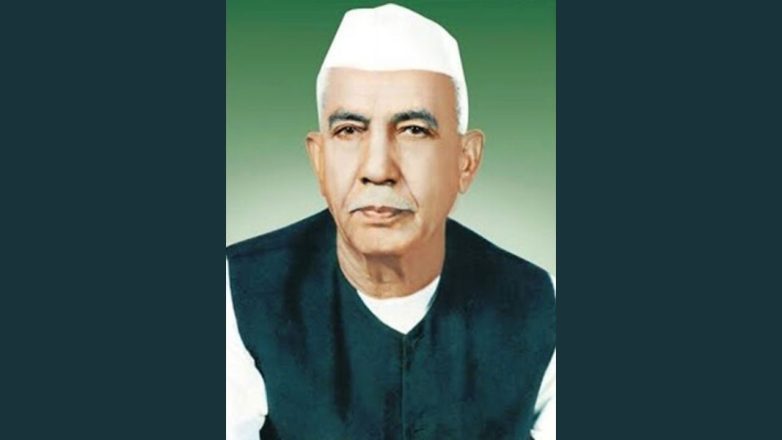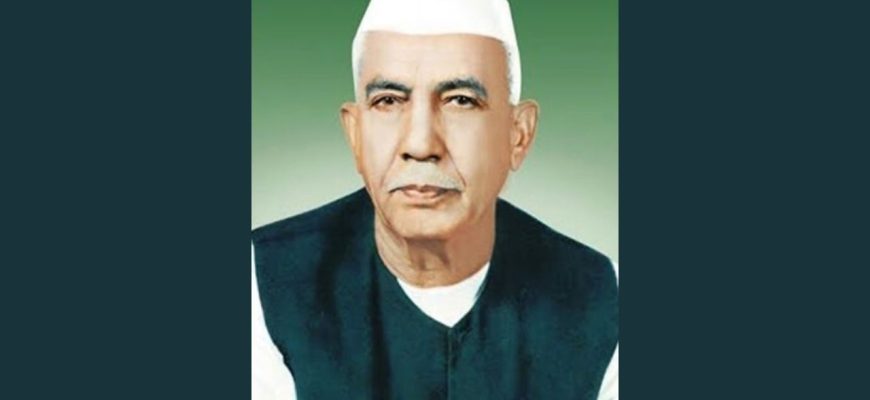
Charan Singh Biography: Chaudhary Charan Singh was born in Noorpur, Uttar Pradesh, India on December 23, 1902. He was a politician who served as Prime Minister for a limited time. Let us learn more about Chaudhary Charan Singh’s early life, education, and political voyage, among other topics.
Charan Singh Biography
Early Life and Education: Chaudhary Charan Singh
His father was an independent tenant farmer, Mir Singh, and his mother was Netra Kaur. He was the oldest of his five siblings. His family migrated from one village in the district of Meerut to another in search of agriculturally viable land. It was discovered in 1922 in the village of Bhadaula.
He attended school in Jani Khurd village. In 1919, he completed his Matriculation at Government High School. He received his BSc from Agra College in 1923 and his MA in history in 1925. He had legal training as well. Singh was a civil law practitioner in Ghaziabad. In 1929, he joined the Indian National Congress and decided to pursue politics full-time.
Throughout his lifetime, he laboured for the betterment of peasant families. His defining characteristics are diligence, independence, and uncompromising honesty. He was incarcerated multiple times for Indian Independence.
Political Journey of Chaudhary Charan Singh and His Major Works
From Chhaprauli, he was first elected to the U.P. Legislative Assembly in 1937. He served as representative in 1946, 1952, 1962, and 1967.
In 1946, he was appointed Parliamentary Secretary in the government of Pandit Govind Ballabh Pant. He worked in a variety of departments, such as Revenue, Medical and Public Health, Justice, Information, etc.
In June 1951, he was appointed Cabinet Minister in the state and assigned responsibility for the Departments of Justice and Information.
He was appointed Minister of Revenue and Agriculture in Dr. Sampurnanand’s cabinet.
In 1959, when he resigned, he was in command of the Department of Revenue and Transportation.
In 1960, he was also Home and Agriculture Minister in Shri C.B. Gupta’s Ministry.
From 1962 to 1963, he served as Agriculture and Forestry Minister in Smt. Sucheta Kriplani’s government.
He resigned from the Department of Agriculture in 1965 and took over the Department of Local Self-Government in 1966.
In February 1970, he again became the Chief Minister of Uttar Pradesh with the support of the Congress Party, following the division of Congress. The state came under President’s authority on October 2, 1970.
He served Uttar Pradesh and earned a reputation as a demanding administrator who would not tolerate inefficiency, nepotism, or corruption in the administration.
In Uttar Pradesh, he was the chief architect of land reforms and was instrumental in the 1939 formulation and passage of the Department Redemption Bill. This brought debtors immense relief.
He was also instrumental in enacting the Land Holding Act in 1960, with the intention of lowering the state-wide cap on land ownership and making it uniform.
He was a firm believer in social justice and acquired the confidence of millions of peasants as a result.
Personal Life
Charan Singh and his wife Gayatri Devi (1905-2002) had six children. Gayatri Devi was elected to the Iglas Legislative Assembly in 1969, the Gokul Legislative Assembly in 1974, Kairana Lok Sabha in 1980, and Mathura Lok Sabha in 1984. His son Ajit Singh was the president of the political party Rashtriya Lok Dal, a former Union minister, and a member of the House of Representatives on numerous occasions. Jayant Chaudhary, the son of Ajit Singh, was elected to the 15th Lok Sabha from Mathura in 2009 but lost to Hema Malini in 2014.
Singh had a stroke on November 29, 1985. Despite being treated in a U.S. facility in March of the following year, he was unable to fully recover from the condition. At 11:35 p.m. (IST) on 28 May 1987, physicians were dispatched to his New Delhi residence after his “unsteady” respiration was detected. He was pronounced deceased at 2:35 a.m. (IST) the following morning following a “cardiovascular collapse” despite futile efforts to revive him.
Wiz Khalifa Biography: Age, Height, Birthday, Early Life, Career, Girlfriend, Net Worth
Ravi Shastri Biography: Birthday, Early Life, Career, Achievements
The Legacy
He was instrumental in drafting and finalising the Department Redemption Bill of 1939. It provided substantial relief to agrarian debtors.
He was instrumental in passing the 1960 Land Holding Act. It reduces the maximum size of land holdings to make them uniform across the state.
His birthday, December 23, is celebrated in India as Kisan Diwas or National Farmer’s Day.








